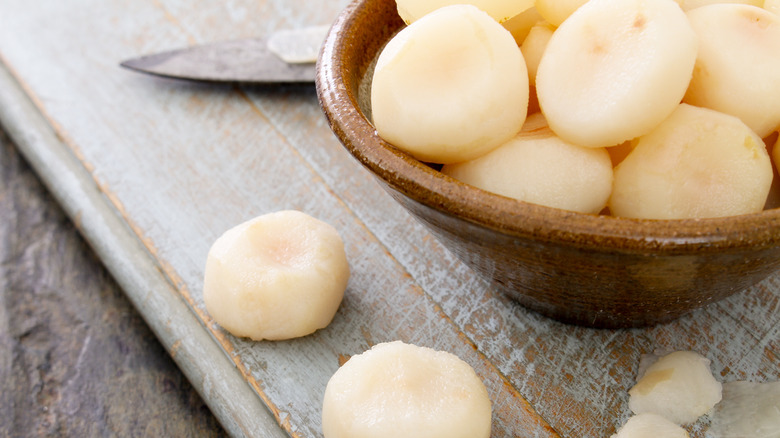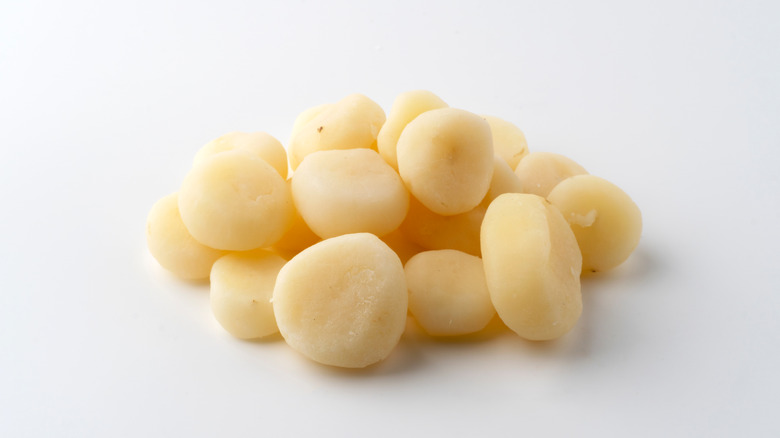The Benefits Of Water Chestnuts
Water chestnuts are tuber plants that are native to many countries throughout the world. You'll find them growing in Australia, tropical parts of Africa, and in many Asian countries such as Japan, China, and India (via WebMD). They also grow on many islands located in the Indian and Pacific Ocean, points out Healthline.
While the name may hint that water chestnuts belong to the nut family, these indeed are not nuts. Rather they're aquatic vegetables that grow on wetlands, paddy fields, and ponds (per Healthline), similar to sea asparagus. Once the bulb, also known as the corm, changes to dark brown, the plant is harvested so many can enjoy its crisp texture and reap the many health benefits that water chestnuts provide.
One of the biggest benefits of water chestnuts is that they're low in calories, but rich in nutrients. In fact, consuming one 100-gram serving of whole water chestnuts will land you at 42 calories, 0.7 grams of protein, and 9.15 grams of carbohydrates, shares U.S. Department of Agriculture (USDA). Inside you'll also find potassium, copper, manganese, riboflavin, and vitamin B6, points out WebMD. These help make water chestnuts a great source of vitamins and antioxidants.
A 2007 study published in Molecules explains that the tissue of water chestnuts has strong antioxidant activity which may be helpful for medicinal purposes. In other words, eating these crunchy vegetables might help protect against disease, due to the high amount of antioxidants, according to Healthline.
Water chestnuts are high in fiber
While many vegetables are high in fiber, this is especially true for water chestnuts. If you're snacking on 100 grams of water chestnuts, expect to get 2.8 grams of dietary fiber, explains USDA. Evidence suggests that dietary fiber is closely tied to metabolic health, helps regulate appetite, and supports gut health functions (via Nutrients). Fiber also helps manage blood sugar levels, reduces cholesterol levels, and promotes healthy bowels, shares Mayo Clinic. In addition, fiber may support weight loss efforts.
Speaking of weight loss and weight maintenance, this is another great health benefit of water chestnuts. According to Healthline, water chestnuts are 74% water. The high water content combined with the high fiber content makes this vegetable a high-volume food, meaning it may curb your hunger and help you stay full longer. The low calorie content also helps with weight loss, making it a healthy snacking choice if you have the munchies.
Water chestnuts are very common in Asian recipes like curries, stir-fries, or chop suey because they're highly nutritious, explains Healthline. However, that's not the only way to enjoy these crunchy veggies, as they're extremely versatile.
Enjoy them raw (after peeling and thoroughly washing them), fried, or consider grilling them on a hot summer day. Healthline suggests tossing them on a salad, using them in an omelet, or using them in traditional Asian dishes like the ones listed above.


